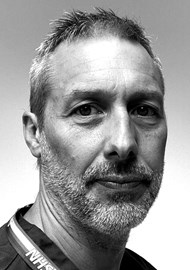Thinking of going back to university to do further study? We hear from one audiologist who identified an area of further study and specialisation and took the leap.
My career in audiology began in 2003 through a traditional route in the UK, learning on the job as it were, as a student audiologist in an established NHS department, with block release learning at an approved college.
I am pleased to see that this style of learning appears to have come full circle with the reintroduction of the current apprenticeship schemes, as I found this an excellent initial introduction to audiology that was grounded in practical learning and backed up with theoretical knowledge.

Once qualified (with BAAT part one and two) I progressed through roles within audiology departments and am currently the lead paediatric audiologist for Chime Social Enterprise. We provide the NHS audiology service for Exeter, Mid and East Devon. We are employee owned and this enables our service to provide excellent levels of flexibility, innovation and expertise. This can be developed where needed for our patients and to meet individual family needs. This flexibility allows timely adjustments to services to cater for the changing needs in these populations, which has recently been recognised, with Chime winning an award for Excellence in Healthcare Science Delivery.
My career in audiology became established within the paediatric field as I found paediatrics so interesting and varied, and find working with children and their families very rewarding. Whilst I have gained considerable experience working within paediatric clinics and learning from colleagues, I was aware that my learning in paediatric audiology was largely experience led and not supported by any formal theoretical training. I felt this needed to be updated for us as a department to ensure we are working with current best and evidence-based practice. This came at a time of multiple retirements in our paediatric department; in practical terms, this meant two people with over 60 years combined experience and qualified at M level or above were lost to the overall team.
"I feel we have enhanced and disseminated the learning throughout the department, and I certainly feel I have grown as a clinician"
An MSc was agreed to enable a smooth transition for our service in view of ongoing changes. I began looking for the most appropriate and interesting course that I felt would suit me best in terms of my learning style and the flexibility I required to be able to learn alongside my current job roles and responsibilities as a part-time endeavour. I decided on the MSc in Advanced Audiology at Manchester University as this provided me with the flexibility to specialise in paediatric audiology throughout almost all of my taught modules (no one can avoid compulsory statistics!). I have been able to complete most modules remotely, which has helped with reducing any impact on my clinical responsibilities for CHIME. The modular nature of the course has enabled me to shape it to cater to both my interests and needs as a clinician. The learning has reinforced my practical clinical experience and informed and improved practice through an increase and update or confirmation of current best and evidence-based practice within this specialism.
There had been a considerable hiatus (like, multiple decades!) since last studying at this level of education, and I initially approached it with some trepidation. This was happily unfounded as there are excellent levels of support available where needed from tutors, in a constructive and positive learning environment. This adaptability has been maintained throughout the three years I have been studying this MSc.
I am currently working on my dissertation which will lift the postgraduate diploma to an MSc and, again, I have had the flexibility to select a topic that holds both interest and, I feel, importance within the paediatric audiology field at present.
"I have particularly enjoyed being able to explore topics that are fundamental to educational audiologists but less commonly taught within the standard audiology field"
It has been reassuring that we have not had to change any practices in our department in any major way and that these were proven to be current and evidence based, but I feel we have enhanced and disseminated the learning throughout the department, and I certainly feel I have grown as a clinician. I have particularly enjoyed being able to explore topics that are fundamental to educational audiologists but less commonly taught within the standard audiology field. This, I feel, has broadened my knowledge, especially around areas such as speech and child development in early years, where previously I had very little comprehensive learning as a paediatric audiologist. This aspect of learning has enhanced my connection with children and families and has informed a more holistic outlook, for example, around additional needs and implications and nuances with diagnoses such as autism that may have been contributed to by an established long-standing hearing loss for a deaf child.
Whilst it has been a challenge at times to juggle the learning with clinical responsibilities, particularly in that first year of returning to studying, I have enjoyed the process and it has been a rewarding experience for me, both personally and professionally. I would not hesitate to recommend it to colleagues.





